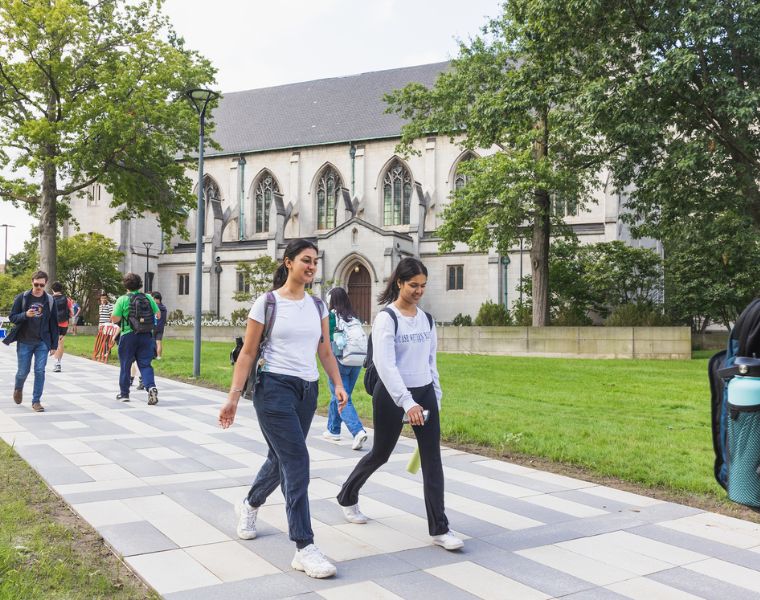Implicit bias in technology. Ethics in environmental engineering. Neuroscience and music. These are just a few of the topics being studied by Jack, Joseph and Morton Mandel Fellows in Case Western Reserve University’s new Experimental Humanities program.
Aimed at integrating the humanities with STEM (science, technology, engineering and mathematics) fields, the program was established with a $2 million grant from the Jack, Joseph and Morton Mandel Foundation last spring.
Now the foundation has added another $1.5 million to its original commitment to expand and enhance the program.
“It’s vital that we prepare young people to lead in a world that continues to grow more complex as technology rapidly advances,” said Mandel Foundation President and CEO Jehuda Reinharz. “We are deeply committed to the expansion of humanities education in the STEM fields, knowing that the exploration of art, literature and philosophy lead to a more compassionate and democratic society.”
This grant from the Mandel Foundation is the latest in a philanthropic relationship with the university that spans more than four decades and exceeds $68 million in cumulative support.
“The Mandel Foundation has been a longtime leader in support for innovative programs at the university,” said Case Western Reserve University President Eric W. Kaler. “This additional grant to the Experimental Humanities initiative will help to advance the next generation of interdisciplinary research and experiential learning needed to solve the world’s greatest challenges.”
The program includes nine first-year undergraduate students who comprise the inaugural cohort of Mandel Fellows in Experimental Humanities. Among them is Shreya Girish, whose curiosities lie at “the intersection of dissonance and dopamine,” as she wrote in her fellowship application.
“I love the freedom to not only explore a variety of interests but even combine them,” said Girish, who is majoring in neuroscience and music, and minoring in computer science. “I’m really excited to see where this program goes—it’s a great opportunity to gain experience in multiple areas and learn from different perspectives.”
Girish’s path reflects an upward trend in students double majoring across the humanities and STEM fields. She and her cohort all bring different interests and strengths to the Experimental Humanities program, the core components of which include a new major in the field and funding support for research projects.
The latter builds on the mission of the Expanding Horizons Initiative, which was launched in 2021 to provide faculty members with seed funding to pursue novel research while offering students hands-on learning opportunities and mentorship.
Provost and Executive Vice President Joy K. Ward spearheaded both initiatives while she was dean of the College of Arts and Sciences, in an effort to increase interest in the humanities and expand interdisciplinary collaborations.
“I have long believed that our students would benefit greatly from an education that is grounded in the humanities, yet also combines the ability to work effectively across science and technology,” Ward said. “This additional commitment by the Mandel Foundation is illustrative of the value in the skills and knowledge being developed as part of the Experimental Humanities initiative. I am thrilled that Case Western Reserve will have the opportunity to grow the program and enable leaders in the ethical use of emerging technologies.”


